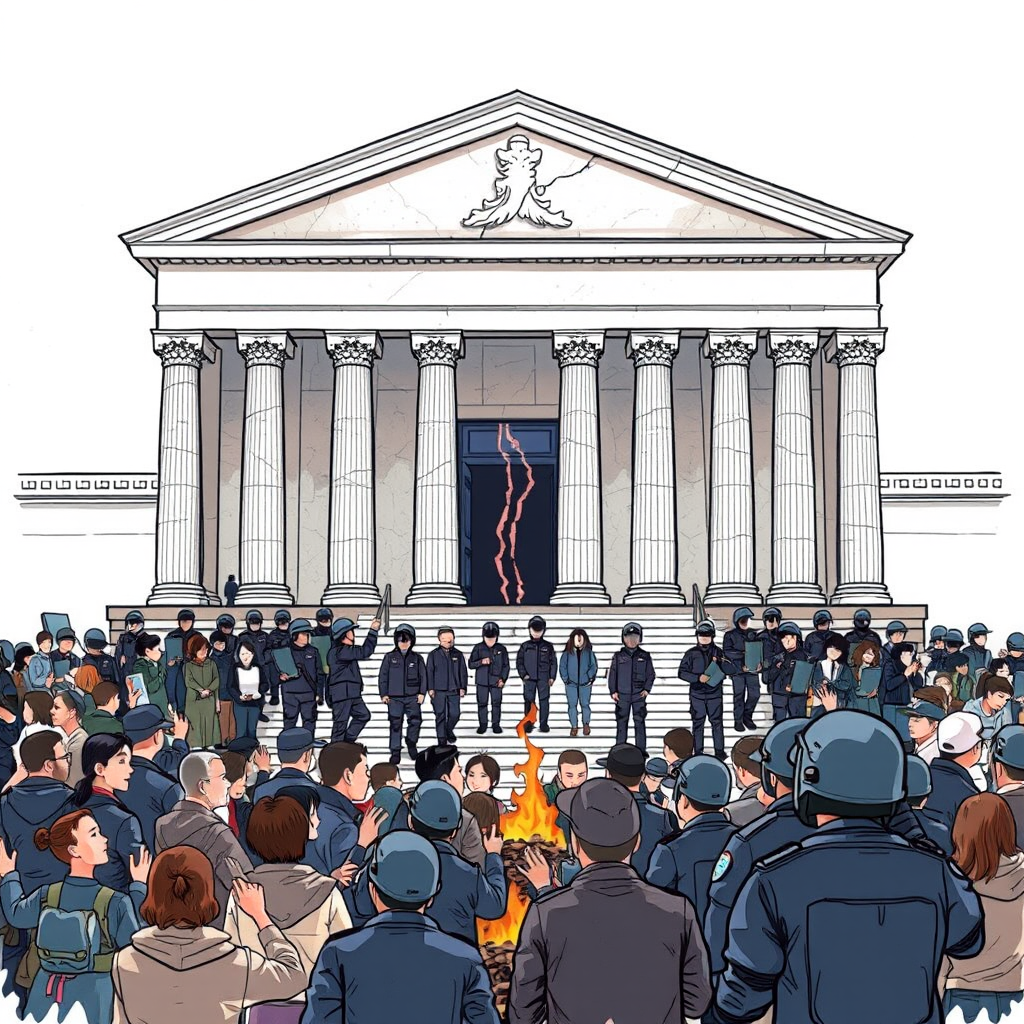South Korea President Impeached, Faces Removal

South Korea’s Constitutional Court delivered a unanimous verdict Friday, removing President Yoon Suk Yeol from office following impeachment proceedings centered on his controversial declaration of martial law. The decision effectively ends Yoon’s presidency and mandates fresh elections within 60 days.
The court found Yoon, 64, in violation of the constitution for his December attempt to circumvent civilian governance. This involved the deployment of armed soldiers to the parliament, a move widely condemned as a subversion of democratic principles. He also faced separate criminal charges of insurrection related to the same actions.
Acting Court President Moon Hyung-bae, announcing the decision, emphasized the “serious negative impact and far-reaching consequences” of Yoon’s constitutional breaches. The judges collectively ruled that Yoon’s actions “violated the core principles of the rule of law and democratic governance,” posing a “grave threat to the stability of the democratic republic.”
Specifically, the court determined that deploying troops with the intent of influencing a parliamentary vote violated the political neutrality of the armed forces and undermined the principle of supreme command. Judges argued Yoon utilized the military for “political purposes,” pitting soldiers against citizens and betraying public trust.
Yoon becomes the second South Korean president to be impeached by the court, following Park Geun-hye in 2017. The decision follows weeks of tense hearings and over a month of deliberation, all while public unrest escalated. Police were placed on high alert, deploying their entire force and establishing a security perimeter around the courthouse.
The announcement of the verdict sparked immediate and contrasting reactions. Anti-Yoon protesters celebrated in the streets, while supporters outside his residence expressed outrage and grief. Tragically, at least two staunch Yoon supporters reportedly died by self-immolation in protest of the impeachment.
International embassies, including those of the United States, France, Russia, and China, issued warnings to citizens advising them to avoid mass gatherings.
Experts hailed the court’s decision as a testament to the resilience of South Korean democracy. “The very fact that the system did not collapse suggests that Korean democracy can survive even the worst challenge against it—a coup attempt,” stated Byunghwan Son, a professor at George Mason University.
The past four months have been marked by political instability, as South Korea navigated a leadership vacuum following the initial impeachment of Yoon’s stand-in replacement (who was later reinstated). This period coincided with a series of crises, including an aviation disaster, devastating wildfires, and the imposition of significant tariffs on South Korean exports to the United States by President Donald Trump.
Yoon also faces a separate criminal trial related to the insurrection charges stemming from his attempt to impose martial law.
This impeachment underscores the fragility of democratic institutions, even in established democracies. While the situation is undoubtedly turbulent, the court’s decisive action reaffirms the importance of upholding constitutional principles and the rule of law. The coming weeks will be critical as South Korea prepares for new elections and seeks to restore political stability. The fact that the system withstood this challenge is a positive sign, but continued vigilance and commitment to democratic values will be essential to ensure a peaceful and prosperous future.